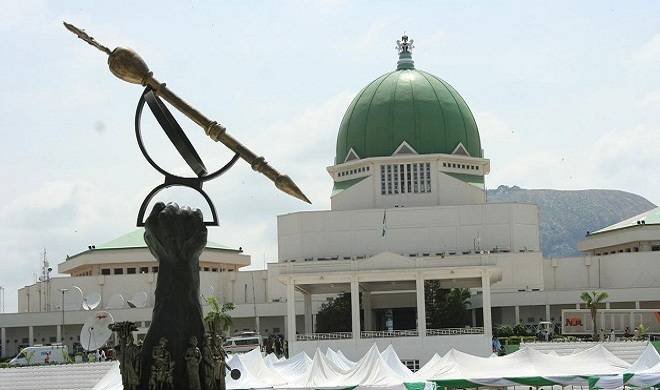Two foreign loans in one month?
Against the grain of stringent protests over Nigeria’s worrisome dalliance with foreign loans, President Muhammadu Buhari, last week, asked the National Assembly to approve a fresh foreign loan of $5.513 billion for the purposes of implementing the revised 2020 budget, assisting states to fight COVID-19, and tackling food security. This new loan request is coming […]

Against the grain of stringent protests over Nigeria’s worrisome dalliance with foreign loans, President Muhammadu Buhari, last week, asked the National Assembly to approve a fresh foreign loan of $5.513 billion for the purposes of implementing the revised 2020 budget, assisting states to fight COVID-19, and tackling food security.
This new loan request is coming barely one month after the Senate’s approval of another $22.79bn loan which is currently pending before the House of Representatives.
An earlier one had suffered a tortuous rite of passage in the legislature, having been initially presented to the immediate past Eighth National Assembly in 2019, but was turned down due to the failure of the executive arm to furnish the legislature with relevant details.
It however enjoyed some rise in its fortunes under the present Ninth National Assembly when the Senate approved it in March but was denied endorsement by the House of Representatives. The House eventually gave its approval to the old one last week, only for the President to come up with the new request soon after.
While the government’s justification for the two loans border on the differences in their purposes, the timings betray a deficit in the country’s fiscal regime, especially with respect to planning and management of public finance.
While the government argues that the new loan is intended for the contingencies associated with the COVID-19 pandemic, and the older one is for addressing the country’s deficit in critical infrastructure, the relative impacts on the economy are hardly exclusive.
Debts by the country – no matter the source and purpose and quantum, remain what they are as obligations that carry terms and conditions as well as consequences which can be detrimental to the country, if things do not go as planned. And this situation remains the primary cause of concern for Nigerians, who already see the country as dangerously over-exposed to debts.
According to Nigeria’s Debt Management Office (DMO), the country’s debt stock as at April 2020 stood at $27 billion, thereby exceeding the 2005 level of $20 billion which spawned the country’s stampede for debt forgiveness by the London and Paris Clubs of creditors. After the successful downward resolution of the country’s external debt profile to $3.5 billion in 2006, the country later commenced another build-up of external debts until it got to the present level than clearly calls for caution, by the nation’s fiscal authorities.
The basis for caution remains justified as the Central Bank of Nigeria (CBN) along with global financial institutions have all echoed the same message. Meanwhile the government seems to have placed such appeals for restraint in abeyance.
The situation is worsened by the reluctance of government to drive the economy in the required direction to mitigate the causes of uncontrolled escalation in public debts in Nigeria, which are numerous and include excessive unplanned expenditure in the public sector, low domestic productivity and savings.
These weaknesses are directly attributable to the quality of governance in the country, which has so far placed low premium on an effective turn-around regime for the economy. Rather than focusing on therapies to reinvent the Nigerian economy, the government is resorting to uncontrolled borrowing. Hence also is the incidence of the two loans issues – all within one month.
It is in the respect that the role of the National Assembly with respect to exercising oversight on the country’s debt management comes into focus with the cases under consideration as metaphors. Given the deleterious effects of debts that go awry, the onus lies on the National Assembly to ensure that the country’s interest is protected in any debt issue both local and foreign.
The National Assembly should also exercise its oversight functions in directing the economy towards enhancing its innate capacity towards attaining self-sufficiency, the ultimate safety valve for debt dependence.
